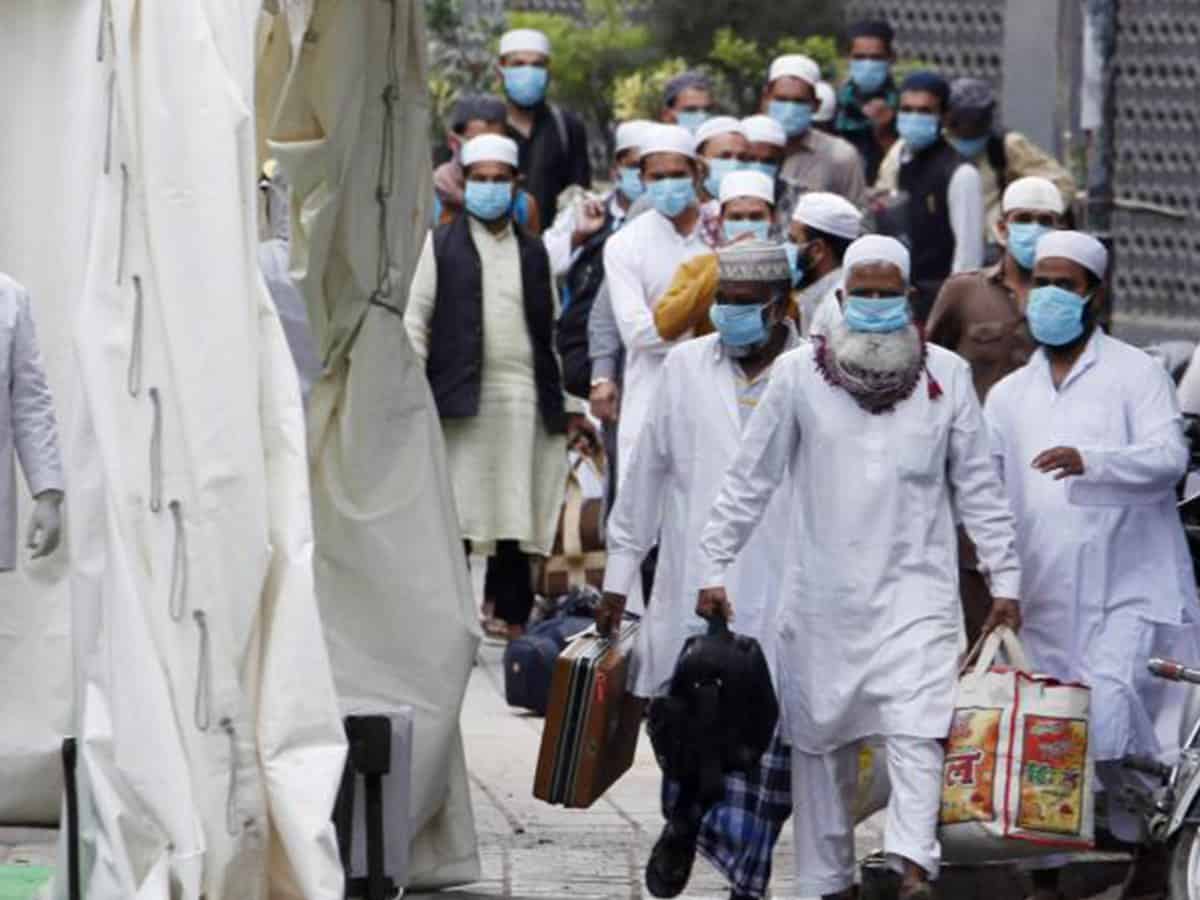
Hyderabad: Just when things are easing up for the Tablighi Jamaat (TJ) in India in the post-COVID scenario, the missionary outfit has come under cloud yet again. This time the blow is dealt by Saudi Arabia, the very place from where Maulana Mohammad Ilyas, the TJ founder, is believed to have drawn inspiration to launch the movement to purify the Muslim faith. The Saudi government has not just banned the organisation but has termed it the ‘gateway of terrorism’.
After the notoriety they attracted for being the ‘super spreader’ of the COVID- 19 virus, TJ members lay low as cases were hoisted against them for violating government orders on congregation. The TJ members, who came from all over the world, unwittingly became the central characters in the Islamophobic propaganda that linked them to the spike in Coronavirus cases in the country.
But their spirits bolstered as courts released all the arrested foreign nationals who attended the Tablighi ijtema at Nizamuddin Markaz in the national capital as they found no credible material against them. The foreign attendees were charged with violation of visa norms, indulging in missionary activities illegally and violating government guidelines issued in the wake of COVID-19 outbreak. The courts also faulted the print and electronic media for running a sustained slander campaign against the TJ using hashtags like #CronaJihad and calling them “manav bomb”.
With let-up in the media-generated prejudice and lockdown norms, TJ members have started their missionary activities with redouble zeal. But the recent crackdown by the Saudi government on the Tablighi Jamaat has come as a shock and surprise to its followers. Muslims generally feel the action by Saudi Arabia is ‘unjust’ and ‘uncalled for’. Unlike other countries, Saudi Arabia doesn’t encourage the dawah (propagation of faith) work in mosques for the past several years. However, the TJ members carry out their activity in a hush-hush manner– mostly in houses. But it is the first time that the Saudi government has openly banned the Tablighi Jamaat.
Many Muslim groups say Saudi action is directed at Al-Ahbab, a North African religious group which also does dawah work. In fact the Saudi tweet mentions the name ‘Al Ahbab’ and calls it a ‘danger to society’. But it is generally interpreted as action against the Sunni missionary movement launched by Maulana Ilyas. The confusion persists.
The Islamic seminary, Darul Uloom Deoband, has faulted the Saudi government’s move and called the allegation of terrorism and bidat (invention in religion) as unfounded. In a statement, Maulana Mufti Abul Qasim Nomani, Chief Rector, Darul Uloom, asked the Saudi government to review its decision on the matter. Despite minor differences, the Jamaat’s missionary work is on and is spread all over the world, he remarked.
The response to the Saudi action is by and large muted. As is its wont, the Tablighi Jamaat has chosen to ignore the matter. When contacted, members of the Shura (consultative) committee in Hyderabad refused to talk on the issue. But there is a simmering discontent in the community. However, a group of Ulema under the banner of Awami Majlis-e Amal came out strongly against the Saudi government for running down the Tablighi Jamaat which has been peacefully carrying out its dawah work for more than half a century. “The Saudi authorities ought to have investigated the Jamaat activities before linking it to terrorism. Strangely they are stopping the revival of the prophetic way while permitting concerts and opening of cinema theaters,” said Abdul Khadeer of Jamaat-e-Islami.
Mufti Tajammul Husain Qasmi, Khateeb (sermon giver), Masjid-e-Husaini, Vijayanagar Colony, asked the Saudi government to prove the charge leveled against the Tablighi Jamaat of being a deviant and dangerous group. Such intemperate statements would do more harm than good to the Muslim community, he said.
At a time when Muslims are being persecuted for their faith, defaming of the revivalist movement is viewed as the unkindest cut of all. Ulema see the Saudi government as a puppet of the US and Israel governments and accuse it of acting at their behest. Top notch Saudi Ulema, it is said, have simply disappeared and many languish in jails for raising their voice against the so called liberalisation drive Crown Prince Mohammad Bin Salman. “Any reaction from India will have little impact on the Saudi government decision,” said an Islamic scholar pleading anonymity.
As part of the Vision 2030, the ultraconservative kingdom has gone on an over drive of liberalisation which tends to sideline deeply rooted religious practices. In recent times powers of clerics have been clipped, indicating a gradual moving away from the Wahabi (puritanical) teachings which revolve around strict interpretation of the holy Quran. With the Prince, Mohammed Bin Salman, assuming a greater role in the kingdom, it is no longer the religious establishments but the monarchy-led State that defines the public order. In the name of social reform things unheard of till recently are taking place in Saudi Arabia.
Significant changes include lifting of ban on setting up cinema halls, restrictions on use of loudspeakers in mosques and end of traditional gender segregation.
The ban on Tablighi Jamaat which focuses on adherence to the Islamic tents is not surprising. But the way the Saudi government has gone about linking it to terrorism, many feel, is too dangerous. It is replete with perils that the Saudi government might not have imagined.
J.S. Ifthekhar is a senior journalist. He was earlier associated with the Indian Express and The Hindu. He has authored three books: Hyderabad – The Nawabi City on The Move, Haj -The Spirit Behind It and Urdu Poets and Writers – Gems of Deccan. As he himself says he “Loves to write and writes to live.”

